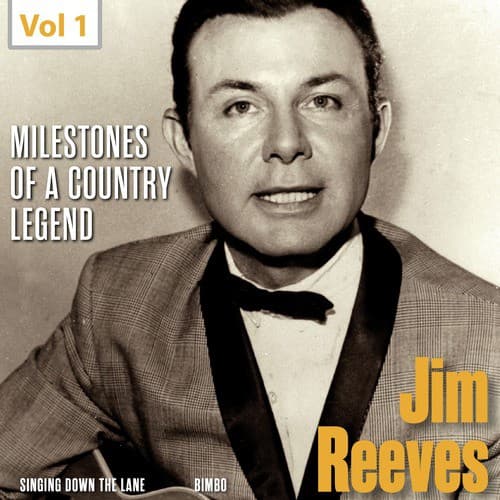
That Wild Side of Gentleman Jim: A Rowdy, Rhinestone-Cowboy Romp
If you know Jim Reeves, you know “Gentleman Jim”—the velvet baritone, the impeccably tailored suits, the smooth, sophisticated sound that earned him a permanent place in the pantheon of country-pop crossover stars. Think of the hushed sincerity of “He’ll Have to Go” or the gentle melancholy of “Four Walls.” However, before he fully embraced the polished “Nashville Sound” that would define his greatest success and legacy, Reeves was a far more traditional, even rambunctious, honky-tonk singer, and no song captures that early, rowdier side better than “Drinking Tequila.”
This spirited track is a wonderful piece of musical history, serving as a snapshot of Reeves right on the cusp of his transformation from a straight-ahead country-western singer into a global phenomenon. “Drinking Tequila,” written by Bob Center, was originally recorded around November 1952 and released as a single on the Abbott Records label (Abbott 178) in 1955. While it doesn’t carry the lasting chart impact of his later RCA hits, this single managed to briefly find its footing, peaking at No. 9 on the Billboard Country and Western chart in 1955. For those who remember that era, the song offers a rare glimpse of a major star before the full sheen of stardom set in—it’s Reeves as an energetic, guitar-strumming Texas boy, rather than the crooner who would later fill concert halls worldwide.
The story laid out in “Drinking Tequila” is a classic piece of mid-century Americana escapism with a border town flavor. The lyrics are straightforward, detailing a wild, unforgettable weekend trip to Juárez, Mexico. The narrator has a fantastic, yet predictably messy, time: “My poor head is aching, it throbs and it twirls / From drinking tequila and teasing the girls.” It’s a fun, two-step invitation to join the lament over a hangover born from too much fun. The meaning is delightfully simple: it’s an ode to the consequences of a youthful spree, capturing the high spirits and low physical state that comes with a night of unrestrained indulgence.
For the older reader, this song is a nostalgic time machine, taking us back to the days of post-war prosperity and the magnetic pull of border towns for a little harmless trouble. The arrangement is pure, snappy 1950s honky-tonk, driven by fiddle and steel guitar, a far cry from the rich, sweeping strings of his later work. The sheer energy and good humor in Reeves’ voice here reminds us that he was a versatile entertainer, not just a balladeer. He could sell the gentle romance of “Adios Amigo” as convincingly as he could the boisterous regret of “Drinking Tequila.” It’s a joyful piece that celebrates living life a little on the edge, a refreshing reminder of the man who, sadly, left us too soon, but left behind a vault of songs spanning the full emotional and musical spectrum of country music.